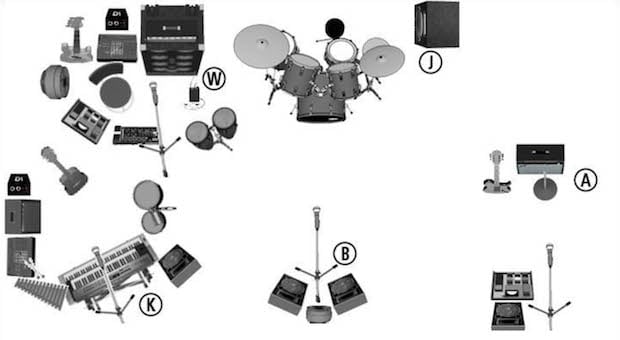 Image via Shutterstock
Image via Shutterstock
Every singer has a unique voice, and everyone wants to find his or her own voice. This should totally be your goal, but I think there's real merit in imitating other singers, and I certainly don’t think you should feel bad about doing it.
Think about it: when you’re practicing literally every other instrument, you start out by imitating certain styles, techniques, and feels perfected by other players. Why should your voice be any different?
Imitating other singers will teach you many, many things about using your voice, and then you can take those lessons and hone your own voice to be the best it can be!
1. Learn what makes famous singers sound like themselves
What makes a famous singer’s voice unique? Is it their range? Their tone? Their vibrato?
It’s the whole package! And the only way to narrow down what makes a voice interesting is by imitating it and figuring out how to make your voice sound like that.
For example, Erykah Badu has one of the most famous voices in neo-soul. When you imitate her unique way of singing, you’ll notice that she uses hard Rs, keeps her tone high in the throat, and has a long, slow vibrato.
Imitating singers like this will help you develop an ear for what a singer is actually doing, so that you can take that technique and use it however you like.
2. Imitating singers can help you rid yourself of bad habits
Without knowing it, many of us have bad habits when we’re singing that can cause us to forfeit accuracy and tone. Imitating the best singers in the world can help you break these habits.
The key is to imitate mindfully. If you’re just doing your best impression, that will be fun (maybe hilarious) but ultimately won’t help. You have to be thinking, “Why are they singing like this?” and, “How does this differ from the way I sing?”
Take Adele. Try imitating her song "Hello." Notice that when she says "I’m sorry" in the chorus, she’s pronouncing certain syllables differently than how you may pronounce them. In regular North American speech, we would say "ay'm sorry." Adele pronounces this "ah'm sorry." This is partly due to her accent, but it also sounds better.
Many of our North American pronunciations sound jarring and can even contribute to notes being bent out of tune. This can also work the other way: pop-country singers have a very obvious "country drawl." These are exaggerated North American pronunciations, and you can learn to sing this way by imitating others.
3. Imitating singers can help you hone your technique
Everyone wants to be able to bust out a sweet vocal run, but many of us are at a loss for ideas. Find a vocal run you like, and then start singing along with it. Soon, you’ll have the melody in your head. You can then try imitating the tone of the singer’s voice. You may find this helps you get closer to nailing the run.
By practicing this way, you’re helping your voice learn to sing accurately, and you’re also learning musical "language." You’re learning which runs sound good and where, so that you can then use them in your owns songs and style!
[4 Ways Even The Shyest Artists Can Develop Their Onstage Persona]
4. Use imitation as a tool, not a vice
Unless you’re in a cover band, imitating other singers should be a tool, not a vice. You can use this technique to get better, but ultimately, people want to hear you. Look into singing with great technique. If you’re truly singing with good technique, you basically won’t have a choice but to sing with your own voice.
Your own voice will shine through when your larynx, jaw, throat, and tongue are relaxed. Your breathing will be regular. You’ll be standing or sitting confidently and comfortably. Then your voice will reveal itself.
If your voice needs a little more coaxing, try creating an original song. In fact, it doesn’t even need to be an entire song; it can be as simple as a melody. Without another recording to reference, you’ll be more likely to sing like you.
If you’ve created something that is all your own, try recording it by yourself. Using a neutral device to listen to yourself is comforting, because you don’t have to expose yourself to friends and family. From here you can work out the kinks in your natural voice.
Becoming a better vocalist if a journey and requires practice, care, and time. Be kind to yourself when you’re listening to your singing – you may not like it, but you can always improve!
Next up: How to Be a Singer
Liam Duncan is a full-time musician from Winnipeg, Canada. He likes to record music with friends and tour with The Middle Coast.







